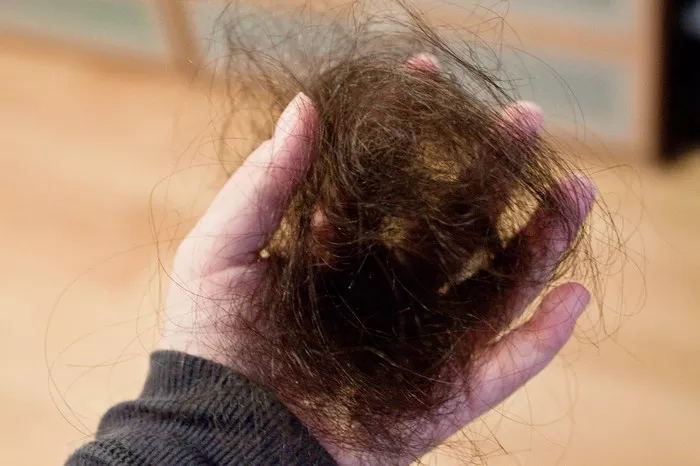Hair growth is a topic that garners significant interest and attention from individuals across various demographics. Whether seeking to address concerns of hair loss, aiming to enhance hair length, or simply desiring healthier, more vibrant locks, many individuals actively seek methods to promote faster hair growth. Amidst a plethora of information available, distinguishing between fact and fiction can be challenging. Understanding the science behind hair growth and identifying effective strategies is crucial for achieving desired results. In this comprehensive article, we delve into the intricacies of hair growth, debunk common myths, and provide evidence-based insights into what truly promotes fast hair growth.
Understanding the Hair Growth Cycle:
Before exploring methods to accelerate hair growth, it is essential to comprehend the natural hair growth cycle. Hair growth occurs in three distinct phases: anagen, catagen, and telogen.
1. Anagen Phase: This phase represents the active growth period, during which hair follicles produce new hair cells. The duration of the anagen phase varies among individuals and largely determines the maximum length of hair.
2. Catagen Phase: Following the anagen phase, hair enters the catagen phase, characterized by a transitional period marked by the cessation of hair growth. During this phase, the hair follicle shrinks, and the hair detaches from the blood supply.
3. Telogen Phase: The telogen phase, also known as the resting phase, signifies the period of dormancy during which old hairs are shed to make way for new ones. Approximately 10-15% of hairs are in the telogen phase at any given time.
Factors Influencing Hair Growth:
Several factors influence the rate and quality of hair growth, ranging from genetics and age to lifestyle and nutritional intake. Understanding these factors can help individuals make informed decisions to support optimal hair health and growth.
1. Genetics: Genetic predisposition plays a significant role in determining hair growth patterns and characteristics. Individuals with a family history of rapid hair growth are more likely to experience similar traits.
2. Hormonal Balance: Hormonal imbalances, such as fluctuations in estrogen, testosterone, and thyroid hormones, can impact hair growth. Hormonal changes during puberty, pregnancy, and menopause may influence hair growth rates.
3. Nutritional Factors: Adequate intake of essential nutrients, including vitamins, minerals, and proteins, is crucial for supporting optimal hair growth. Nutrients such as biotin, vitamin D, iron, and zinc play key roles in maintaining healthy hair follicles and promoting hair growth.
4. Scalp Health: The condition of the scalp directly affects hair growth. A clean, well-nourished scalp encourages healthy hair follicles and promotes optimal conditions for hair growth.
5. Lifestyle Choices: Lifestyle factors, including stress levels, sleep quality, and hair care practices, can impact hair growth. High stress levels and poor sleep can disrupt hormonal balance and impede hair growth, while gentle hair care practices can minimize damage and breakage.
Debunking Common Myths:
In the quest for faster hair growth, numerous myths and misconceptions abound. Debunking these myths is essential to prevent misinformation and guide individuals towards evidence-based practices.
Myth 1: Cutting hair frequently promotes faster growth.
Reality: While regular trims help maintain hair health by preventing split ends, they do not directly influence hair growth rates. Hair growth occurs at the scalp, and trimming the ends does not affect the rate at which hair grows from the roots.
Myth 2: Massaging the scalp stimulates hair growth.
Reality: Scalp massage can improve blood circulation to the hair follicles, potentially enhancing nutrient delivery and promoting hair health. However, while scalp massage may support overall scalp health, there is limited scientific evidence to suggest that it directly accelerates hair growth.
Myth 3: Using certain products can dramatically speed up hair growth.
Reality: While some hair care products may claim to promote faster hair growth, the efficacy of such products varies. It is essential to scrutinize product claims and prioritize those supported by scientific evidence. Additionally, individual responses to products may vary, making it important to experiment and find what works best for each person.
Effective Strategies for Promoting Fast Hair Growth:
While genetic factors largely determine the maximum potential for hair growth, several strategies can support and optimize the natural growth process.
1. Maintain a Balanced Diet: Consuming a nutrient-rich diet is essential for promoting hair growth from within. Focus on incorporating foods rich in vitamins (such as fruits and vegetables), proteins (such as lean meats and legumes), and essential fatty acids (found in fish, nuts, and seeds) to provide the building blocks necessary for healthy hair follicles.
2. Stay Hydrated: Adequate hydration is crucial for overall health and can also benefit hair growth. Aim to drink plenty of water throughout the day to keep your body and hair properly hydrated.
3. Practice Gentle Hair Care: Avoid excessive heat styling, harsh chemicals, and tight hairstyles that can damage the hair shaft and impede growth. Opt for gentle hair care products formulated with nourishing ingredients and minimize manipulation to reduce breakage.
4. Prioritize Scalp Health: Maintain a clean and healthy scalp by regularly washing with a gentle shampoo and conditioner. Incorporating scalp exfoliation and occasional deep conditioning treatments can further support scalp health and create an optimal environment for hair growth.
5. Manage Stress: Chronic stress can disrupt hormonal balance and negatively impact hair growth. Incorporate stress-reducing activities such as meditation, yoga, or deep breathing exercises into your daily routine to promote overall well-being and support healthy hair growth.
Conclusion:
Achieving faster hair growth involves a multifaceted approach that addresses various factors influencing the growth cycle. While genetics ultimately dictate individual hair growth patterns, adopting healthy lifestyle habits, nourishing the body with essential nutrients, and prioritizing scalp health can optimize the conditions for maximal hair growth. By dispelling myths and embracing evidence-based strategies, individuals can work towards achieving the luscious locks they desire, unlocking the secrets to fast and healthy hair growth.


